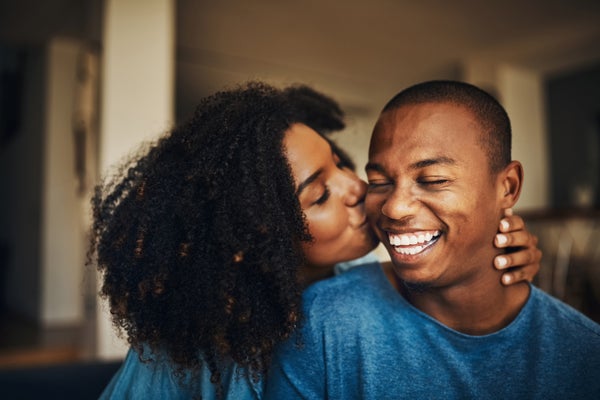This article was published in Scientific American’s former blog network and reflects the views of the author, not necessarily those of Scientific American
As the global strategy for slowing the spread of the COVID-19 pandemic changes from containment to mitigation, millions of residents are being asked to shelter in place, leaving their homes only for essential needs. This limitation of movement and social interaction has been a major stress test for marriages. In China, the strain of life under mandatory self-quarantine has sparked a surge in divorce filings, which feels like a prophetic warning for couples currently on lockdown across the United States.
But could conditions created by the pandemic also bring couples closer together?
Research on stress and marriage suggests that in times of major upheaval, spouses are the main sources of support. But not all support is equal. For it to work in the face of stress, relationship partners must be perceived as responsive, conveying understanding, validation and caring—someone who really gets you and your way of thinking and acting. Research conducted in our labs and others over the past decade broadly supports this conclusion: having a responsive partner can reduce the body’s release of the stress hormone cortisol; improve sleep by lowering anxiety; and even enhance longevity by dampening reactivity to daily stressors.
On supporting science journalism
If you're enjoying this article, consider supporting our award-winning journalism by subscribing. By purchasing a subscription you are helping to ensure the future of impactful stories about the discoveries and ideas shaping our world today.
Just as feeling understood, validated and cared for during a stressful experience is valuable, feeling responded to when good things happen is also beneficial. Daily hassles create opportunities for partner responsiveness, but so do positive events. Research shows that sharing our daily successes with our partners promotes intimacy and trust in our relationships—as long as our partners respond enthusiastically to those successes.
The prolonged period of quarantine that couples are currently going through, while painful for many, could unfold as an opportunity for personal growth and development. For some, this might manifest as getting back on track—what relationship researcher John Gottman calls “repair attempts” that prevent conflict from spiraling downward into negativity. For other couples, the pandemic may provide an opportunity to reflect on each other’s needs and goals and practice mutual responsiveness, creating an upward spiral of appreciation, caring and understanding. One thing is certain: The marital fallout from COVID-19 and its aftermath are not preordained.
Living in this new reality of physical distancing, we can turn to social and behavioral scientists for some answers. On March 27, one of us (Richard Slatcher) launched an international project (“Love in the Time of COVID”) to study the effects of the pandemic on people’s social relationships. Much is sure to be learned from this research, such as what factors (e.g., social isolation, personality characteristics, socioeconomic disadvantage) increase vulnerabilities for mental and physical health problems following COVID-19 exposure and infection. Conversely, these findings and others may also tell us what accounts for why some people will be resilient during and after the crisis.
Pandemics bring much uncertainty, but there is also potential for hope and courage. In the wake of the outbreak, love stories of couples kept apart by the coronavirus shutdown have surfaced on social media. In Wuhan, Hubei province, the city that was the initial epicenter of the outbreak, a video shows medical workers—brought in from across China to contain the outbreak—assembled in a large auditorium to see their loved ones, many wiping away tears welling up behind mask-covered faces. One medical worker announces to her partner, “When this epidemic is over, I will accompany you to anywhere you want to go."
Eventually, the quarantine will end and we will turn to rebuilding our city, our economy and our lives. One imagines a future in which we learn the lessons from this pandemic. Health practices acquired over the course of the outbreak, such as washing our hands for 20 seconds, stay with us. Federal funding for testing and medical supplies is augmented. Citizens look to science as an antidote against fear and misinformation. A communal spirit of kindness prevails.
In the face of adversity, many couples across the country are learning the measure of love.
